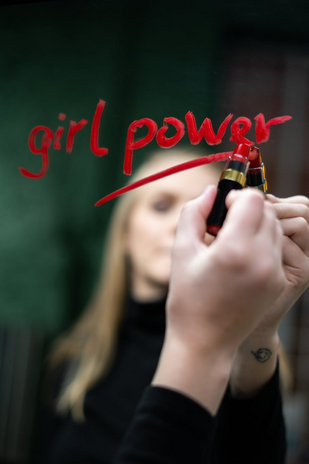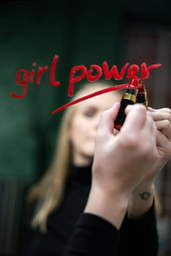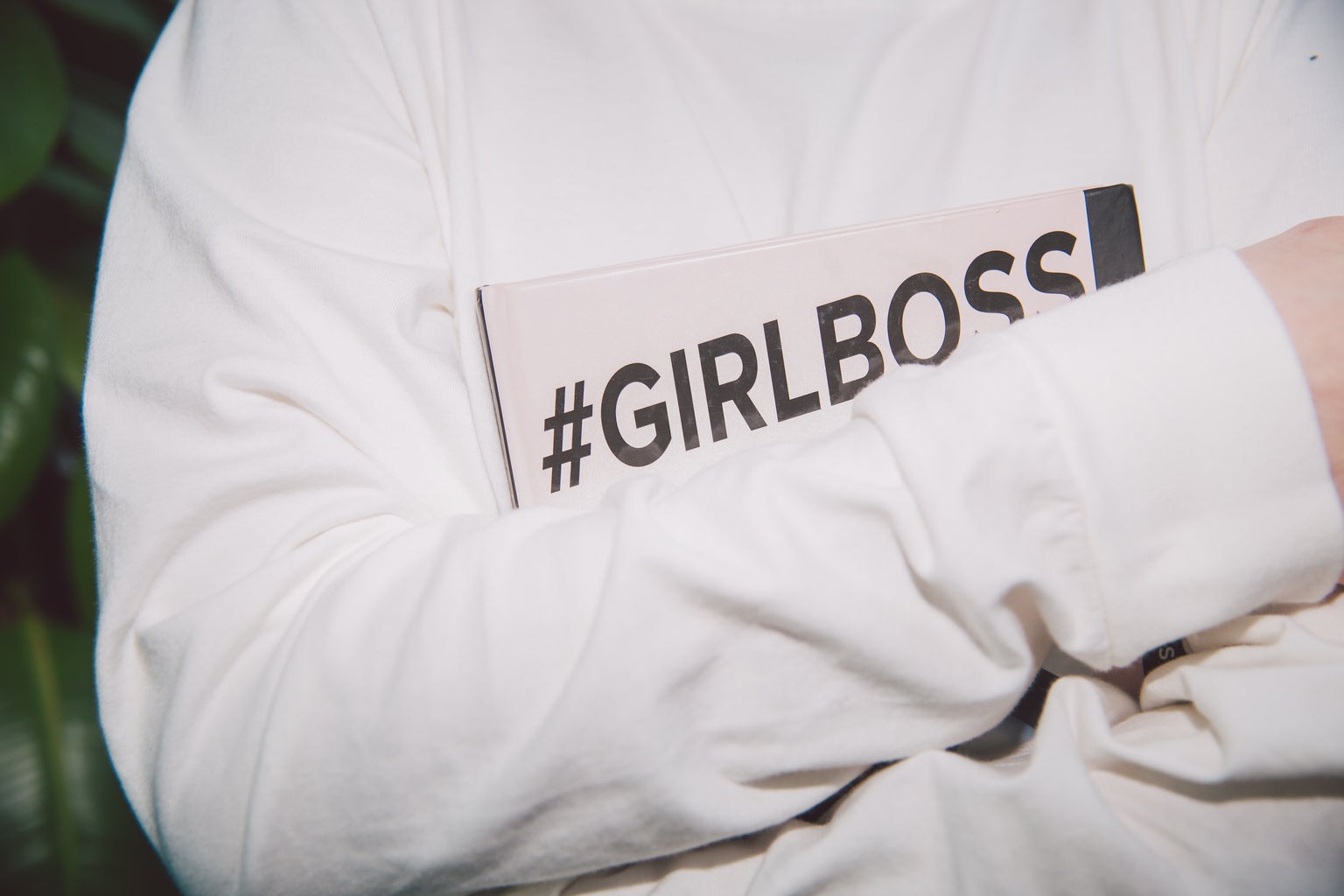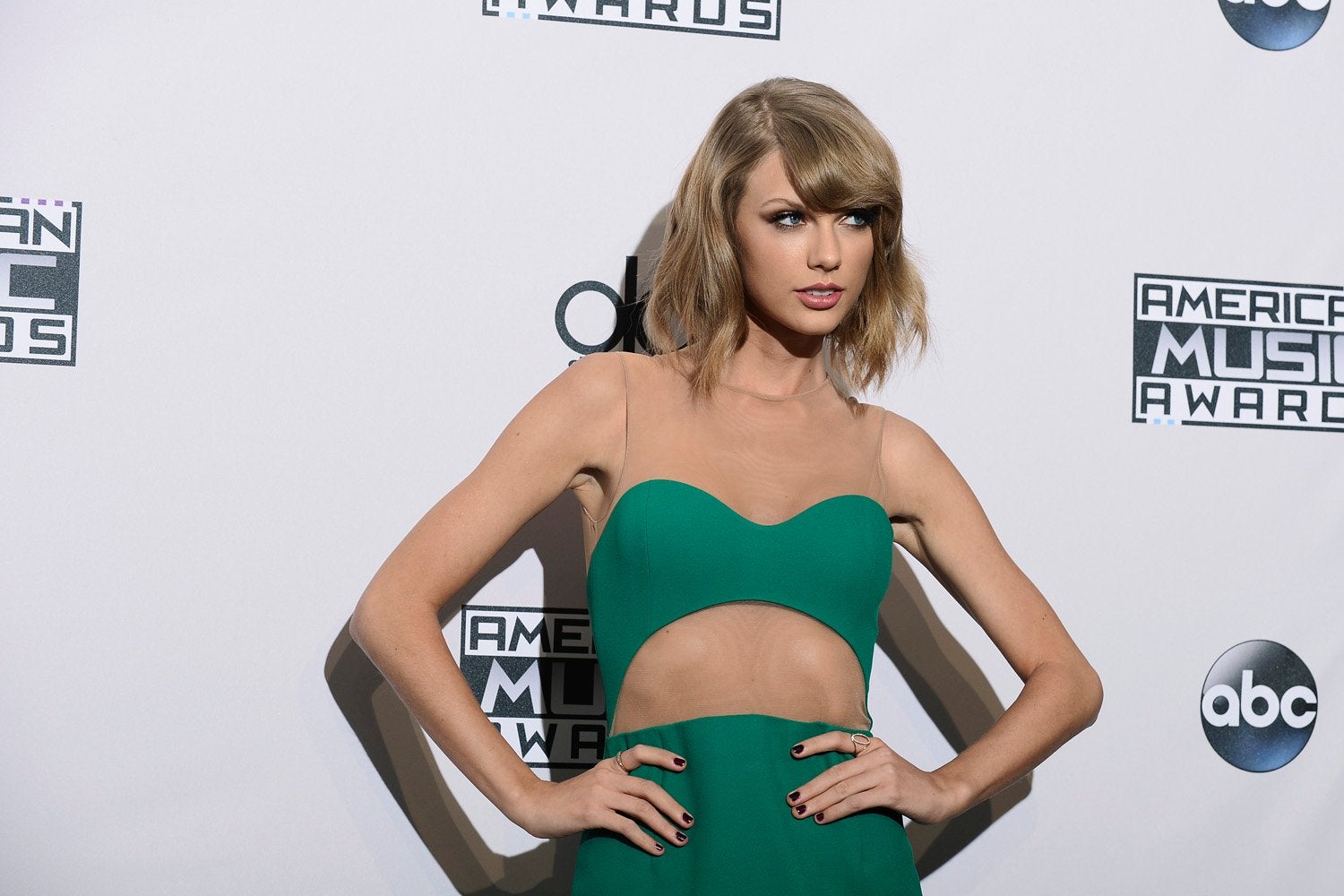Like many other young, adolescent girls, I went through the absolutely mortifying “I’m not like other girls” phase. I convinced myself that I didn’t like the color pink, despite calling it my favorite color my entire life up to that point. When I was 13, I painted my previously purple bedroom walls the most obnoxiously fluorescent teal green color I could find at Home Depot, trying to erase the “girly” colors and flower wallpaper that marked my childhood bedroom. I would scoff and roll my eyes at my mom when we were in a store, and she pointed to articles of clothing with sparkles or glitter, saying how cute I would look in them. I grew up very feminine—I had a replica of every Disney princess dress hanging in my closet, stole my mom’s makeup and high-heels regularly, and had a fascination with jewelry; I loved being feminine. Being a girl was something to be proud of. Yet by my tween years, as I was figuring myself out and trying to figure out what kind of person I wanted to be, I knew that “girly girl” was to avoid indefinitely. Priding myself on only using mascara as opposed to caking on a full face of makeup every morning, I would walk down the halls of my middle school, trying to avoid the stereotypes that had previously represented me.
Looking back on this, I cringe at this behavior. Yet, I’m not alone in this experience of swearing off femininity, as many of the women that I know now also went through the phase of trying to embody the “not like other girls” archetype.
When young girls convince themselves that they’re “not like other girls,” they mean that they’re not mindless, ditsy caricatures of boobs and makeup. It is completely heartbreaking that women are portrayed so poorly in society that girls think that having interests and personalities sets them apart from the greater population of women.
Grappling with my own internalized misogyny is something that I have become more and more acquainted with as I’ve gotten older and more involved in social justice movements and feminist issues. I find myself resenting other women because I view them as competition—too pretty, too skinny, too smart, too funny, too loud, too quiet—there was always an excuse to push away relationships with other women. Being socialized as a woman emphasizes that you always need to be the best at everything, and every other woman is competing with you for that top spot.
Spoiler alert: there is no top spot, and it is impossible to be the best at everything…and that’s just the way it is. As I’ve reconciled with the fact that the negative perspective I’ve had on women is simply a byproduct of the patriarchy, pitting women against each other, I have some apologies to make.
My own internalized misogyny has impacted my relationship and perspective with my mother. She would cry at every school play, every award ceremony, every dance recital, and every other achievement I had accomplished. I called her “too emotional.” She dedicated her life to public education advocacy because she had a child in elementary school and wanted her to get the best education she possibly could. She led protests to pass amendments and remove board members to ensure that I as well as other schoolchildren in Colorado would have all of the resources to be successful. As she held picket signs on Wadsworth Blvd, yelling chants at passing cars, I laughed with my friends about how “loud” she was. She would argue with members of the PTA or that one 6th grade teacher I had, or anybody else when they did something unjust. “What a bitch.” One time she was super friendly with a male server at a restaurant, understanding that they likely made minimum wage and were often treated poorly by entitled customers. And I, at the ripe age of 8, asked why she was flirting with him when dad was right there.
Oh. My. God.
Words cannot describe how sorry I am. To take someone who has selflessly given their life to do whatever it takes to help others just only to see their flaws is unimaginable. And the worst part is that none of these thoughts ever crossed my mind when I thought about my father. The double standard that is instilled in all of us is incredibly harmful.
I would also like to apologize to the women in modern media who I have put down and criticized. Take Taylor Swift, for example. When I was younger, I would always make the comment, “all of her songs were about breakups,” and criticize Taylor’s vast dating history and long lineup of failed relationships. Taylor’s song “The Man” from her “Lover” album comments on this double standard of how the public looks poorly at her for being a “serial dater,” yet if she were a male celebrity, she would be celebrated for her conquests. In one of her new vault tracks from the latest release, “1989 Taylor’s Version”, “Slut!”, she remarks on how her dating history is a topic widely discussed by the media, and how, despite her happiness and success, such a negative depiction of her is seemingly inevitable as a well-known female celebrity.
Even the way I view myself often reflects my own internalized misogyny. I’ve allowed myself to like pink again, wear skirts, and wear makeup other than GreatLash mascara, but I often find myself questioning my legitimacy and worth. I’ll get ready for classes, doing my eyeliner followed by putting on my lab coat, and then begin to wonder if those two will cancel each other out—that it’s impossible to be feminine and be a scientist at the same time. I often think twice, or three times, or even more than that about the way I present myself in fear of not being taken seriously in my field, because, an incredibly patriarchal thought I often encounter, the more feminine I am, the less likely I am to be successful.
It takes a lot for young women, like myself, to break down their own internalized misogyny in a society that fails to recognize that it even exists in the first place. I couldn’t even fathom that, as a woman, I can still be part of the problem. Women who experience this phenomenon aren’t bad people, nor are they anti-feminist; misogyny is unavoidable in a patriarchal society. However, as we learn to recognize it, call ourselves and each other out on it, and eradicate it, we will stop holding other women back and work towards the common goal of smashing the patriarchy.





